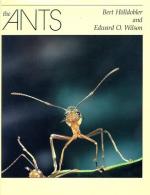|
This section contains 456 words (approx. 2 pages at 400 words per page) |

|
Chapter 4 Altruism and the Origin of the Worker Caste Summary
Altruism (self-destructive behavior performed for the benefit of others) and altruistic behavior are discussed in general terms, and then explored as they apply to the ants. The text does not fully develop theories of altruism, but does provide citations to applicable existing literature.
The function of altruistic behavior in ant colonies is described. An ant colony typically consists of many thousands of individuals (the workers) who forego reproduction in order to assist another individual (the queen) to be enormously reproductively successful. This altruistic behavior is extremely rare outside of the eusocial insects. Haplodiploidy (a mode of sex determination in which males are derived from haploid - unfertilized - eggs, and females from diploid - fertilized - eggs) is thought to exert a strong influence on the altruistic...
(read more from the Chapter 4 Altruism and the Origin of the Worker Caste Summary)
|
This section contains 456 words (approx. 2 pages at 400 words per page) |

|




